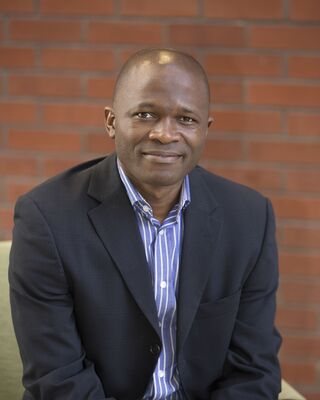Health
Learnings from a Grassroots Initiative in Cameroon
Global mental health has much to learn from grassroots initiatives.
Posted December 14, 2020
Global mental health is often viewed in terms of transposing Western models of mental health to new communities and societies that have had limited exposure to the resources of modern (biomedical) medicine. Global mental health may thus draw upon the premise that advances in psychopharmacology, theories of etiology, and contemporary interventions reflect universal paradigms as promoted in training programs in Western countries. That is, we have something to offer countries and societies which are seen as disadvantaged. I wish to argue that the underlying assumptions and arguments are significantly more complex, and contemporary practice may also learn from communities and initiatives in so-called developing countries.
The very notion of wellbeing in Western countries is all too often based upon a world-view drawing upon Descartes’ notions of dualism. Assumptions concerning the individual mind and rationality are privileged over communality and healing in the community context. That is, healing in Western mental health settings is based upon the cultural prototype of a one-to-one conversation, while healing in some traditional societies involves the healer as a ritual specialist who may engage with a person who is seeking help of some kind but also engages with the larger community. This may occur in the context of ceremonies or healing practices such as umxhentso, a traditional dancing practice performed by healers (amagqira) and their initiates. During this ceremonial dance, usually accompanied by a rhythmic drum beat and clapping, participants may share dreams or insights, all within the context of community.

The reason for sharing these observations is to underscore the fact that psychological healing occurs across all societies, but the form may be very different. To begin to appreciate the diversity of practices that contribute to global mental health requires an understanding of the distinct features of healing initiatives across communities and societies. I have previously written a blog post on the “Friendship Bench,” an initiative started in Zimbabwe. In this contribution, I wish to describe contributions by a mental health worker embedded within his particular community: Denis Jato and his work with the Integrated Health for All Foundation (IHAF) in promoting mental wellbeing in Cameroon.
Denis Jato is a Public Health Specialist in Cameroon with extensive experience in working in local communities in Cameroon, where people presenting with mental health concerns are often stigmatised. The Foundation was established in 2004 and extended in 2017 to include mental health. Denis began with a low key approach, described as offering psychotherapy through listening to the stories of young people dealing with difficulties, providing advice, and assisting with the material needs of young people, whether purchasing writing materials or snacks for lunch.
However, the overarching goal is to meet students’ needs for support and assist them to achieve their potential. He provided the following example of the kinds of issues he deals with and the ways in which he may approach the problems:
Presentation
A student, whom he called Hope, was diagnosed with a rare cancer and suffered from isolation and depression as his classmates did not want to associate with him due to his medical condition. His difficulties were exacerbated since his father found it difficult to afford the medications he needed, which contributed to a sense of futility. Denis observed the degree to which these dynamics further contributed to Hope’s low mood, distress, and poor academic performance.
Intervention
Denis met with Hope each week and described providing him with a space for reflecting upon and talking about his situation during the school’s sports period as his medical condition precluded him from participating in sport. He described his interventions in the following terms:

The initial phase was to listen to his story (background, experiences, and future plans).
I asked some questions on his best and worst moments in life and how he felt.
Building on his story, I discussed his need for self-worth and acceptance, self-confidence, and encouraged his dreams despite his condition.
To address his problem with class-mates, I presented a brief talk during morning assembly on respect and acceptance. This was followed by discussion with school staff to sustain the initiative.
To address the situation at home, I also held a session with his dad.
The “intervention” was in a public space, sometimes accompanied by lunch, and characterized by jokes and laughter, all aimed at assisting Hope to feel accepted.
Outcome
Denis described how Hope, initially sad and shy, became more open and expressive of his feelings. Furthermore, students became more accepting, he established a good friendship with a fellow student, his academic performance improved significantly and Dennis described a new sense of hope permeating his life. Also, his father was able to make arrangements to obtain the medication he needed. Denis recounted the following feedback from the young student:
“Sir, I did not know that talking to someone is medicinal. Listening to you has helped improve my physical health and I feel even much better when I take my medication compared to previous experiences.”
Future Plans
- Scale up the psychotherapy program to cover more schools and create campus clubs able to sustain new psychological initiatives.
- Develop a manual to help schools sensitize students to the dangers of substance abuse.
- Establish collaboration with other organizations to increase human resources to address psychological wellbeing in Cameroon.

The work being undertaken in Cameroon, a country of 25 million people and an average income of just $1,498 per capita per annum, points to the idea of people living in community where grassroots organisations function and address mental health needs in ways that are responsive to the individual needs of members of the community, often in a manner consistent with the values and meanings of the larger community.
Jerome and Julia Frank wrote a classic text in 1993, titled Persuasion and Healing: A Comparative Study of Psychotherapy. They argued that there were common elements across psychotherapies, whether in the practice of psychologists or psychiatrists in so-called advanced post-industrial countries, or the work of healers or shamans in less-industrialised societies and “religious-magical” traditions. They postulated that “demoralizing meaning” lies at the core of distress across cultures. Context is thus critical.
Jerome Frank is given credit for proposing a “common factors” approach to understanding healing. That is, healing in both post-industrial societies and low-income countries rely upon myths, whether provided by shamans (or in my experience, the Igqira in Southern Africa) who claim to have access to a supernatural world, or the modern therapists who claim access to culturally sanctioned scientific knowledge. This knowledge is more commonly referred to as “evidence-based” knowledge. Both can play a role in establishing an expectation of improvement in those seeking assistance, and both engage in rituals. Psychologists engage in a number of rituals, including the provision of a setting in which they may display framed degrees from prestigious centres of learning on their walls and complex accreditation processes. They also share a language with their clients; that is, they provide a clear rationale for their approach. The same can be said for people charged with helping others in communities in Africa.
While Denis has a good understanding of contemporary counselling approaches, he also shares a common language with his “client,” met with him in a public space, and enjoyed prestige when approaching his father and providing the family with advice, which would bring about change.
Further factors identified by Frank include the notions of helping the patient overcoming a sense of demoralization through evoking an emotional experience and fostering hope. No doubt, the serious nature of the medical condition (a rare form of cancer) and subsequent peer rejection/neglect of the person being helped in the example would have underpinned the emotional nature of the relationship with Denis, and together, they would have addressed Hope’s concerns.
All healing takes place within a cultural context. In the context of global health, it is worth reminding ourselves of the strong psychological bias which underpins therapeutic change, and the limits of Western reductionistic models. Of course, modern mental health practices have a place. For example, we would not wish to be without anti-epileptics for the management of epilepsy but we also need to be respectful of the special role of grassroots organizations in addressing the reality of suffering in a community.
Denis Jato participated in an Australia Awards-Africa Short Course on Mental Health in 2019 and is a member of the Integrated Health for All Foundation (IHAF).
References
Frank, Jerome; Frank, Julia B. (1993). Persuasion and Healing: A Comparative Study of Psychotherapy. JHU Press. ISBN 978-0-80184636-6.




